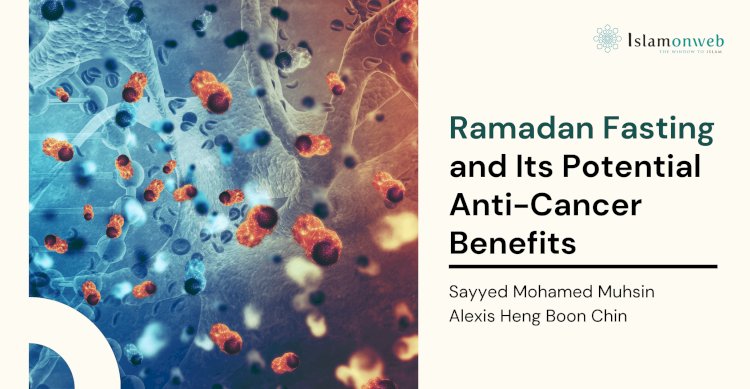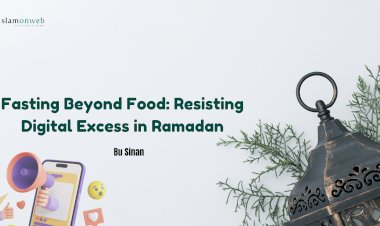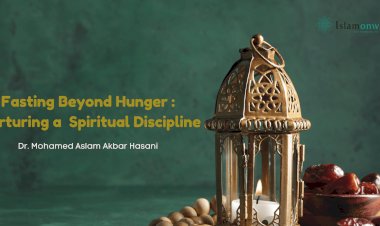Ramadan Fasting and Its Potential Anti-Cancer Benefits
In 2022, nearly 20 million new cancer cases were reported worldwide, with approximately 9.7 million deaths attributed to the disease. These staggering figures highlight the relentless global impact of cancer, which remains one of the leading causes of morbidity and mortality worldwide. Characterized by the uncontrolled growth of abnormal cells that disrupts the healthy functioning of various tissues and organs throughout the human body, cancer imposes a significant burden on public health systems and economies worldwide, besides the personal suffering of patients and their families.
To combat rising cancer rates, various preventive strategies have been implemented. These include lifestyle modifications such as adopting a healthy diet and engaging in regular physical activity, as well as medical interventions like vaccinations and early detection through regular medical checkups. Additionally, public health initiatives play a crucial role in minimizing exposure to carcinogens and promoting awareness.
In a world filled with abundance and indulgence, Ramadan introduces a significant shift in daily routines. Beyond its deep spiritual significance, fasting also brings notable physical and mental health benefits. The growing popularity of intermittent fasting highlights its potential for overall health improvement, weight management, and enhanced well-being.
For those observing Ramadan, understanding the health advantages of fasting can help them optimize their well-being, boost disease prevention, and promote long-term health, alongside its profound religious and spiritual significance.
A recent study (September, 2024) published in the European Journal of Clinical Medicine highlights the growing interest in intermittent fasting as a dietary approach with potential health benefits, including cancer prevention and management. Researchers have explored how fasting influences cancer by regulating metabolism, balancing hormones, and affecting cellular functions. Findings suggest that fasting can help control blood sugar levels and lower liver enzyme activity in individuals with non-alcoholic fatty liver disease (NAFLD), which may reduce the risk of liver cancer. In breast cancer cases, fasting has been linked to slower tumor growth and increased cancer cell death by reducing insulin-like growth factor 1 (IGF-1) levels. For individuals with polycystic ovary syndrome (PCOS), fasting has shown positive effects on metabolism and hormone balance, potentially lowering their cancer risk. Additionally, fasting may ease the side effects of chemotherapy, leading to better treatment outcomes. By supporting key metabolic functions, reducing inflammation, and improving drug effectiveness, fasting is emerging as a promising tool in cancer prevention and care.
A 2024 study published in The American Journal of Clinical Nutrition provides new insights into the health benefits of Ramadan fasting. The London Ramadan Study (LORANS), which analyzed blood samples from 72 participants before and after Ramadan, found a significant reduction in metabolic markers linked to major cancers. The results suggest that fasting during Ramadan may lower the risk of lung, colorectal, and breast cancers.
A 2022 study suggests that fasting could play a vital role in cancer treatment by creating conditions that limit cancer cells’ ability to adapt, survive, and grow. Research also indicates that fasting enhances the effectiveness of cancer therapies while reducing their side effects. Intermittent fasting, which alternates between periods of eating and fasting, has been shown to positively impact metabolism, immunity, and overall cancer progression. Additionally, studies highlight its potential for weight management and its ability to help prevent or even reverse certain diseases. Indeed, many Muslim countries have among the lowest cancer rates in the world, which can be attributed to the health benefits of intermittent fasting during Ramadan.
Intermittent fasting has gained attention as a crucial approach to counteract modern sedentary lifestyles, where round-the-clock access to the internet, television, and digital entertainment keeps people awake longer, leading to excessive snacking and prolonged inactivity. This pattern increases the risk of obesity, type 2 diabetes, and heart disease. Scientific research suggests that intermittent fasting may help reverse these negative health trends.
Neuroscientist Mark Mattson, who has studied intermittent fasting for 25 years, explains that after extended periods without food, the body depletes its sugar reserves and begins burning fat—a process known as metabolic switching. This shift enhances metabolic health and supports weight management.
Additionally, studies indicate that intermittent fasting offers numerous health benefits, including reduced inflammation, improved brain function, and better insulin sensitivity. It may also lower the risk of Alzheimer’s disease, cardiovascular conditions, and type 2 diabetes by reducing oxidative stress and promoting cellular repair.
Muslims can maximize the health benefits of fasting by ensuring their Sahoor (pre-dawn meal) and Iftar (meal to break the fast) are balanced, neither excessive nor unhealthy. By maintaining a nutritious diet, they can experience the physical advantages of fasting alongside its profound spiritual rewards.
About the author
Dr Sayyed Mohamed Muhsin is an assistant professor of Islamic jurisprudence at International Islamic University Malaysia. Dr Alexis Heng Boon Chin is an associate professor of biomedical sciences at Peking University
References
1. https://www.ej-clinicmed.org/index.php/clinicmed/article/view/345
2. https://www.sciencedirect.com/science/article/pii/S000291652400056X
3. https://pmc.ncbi.nlm.nih.gov/articles/PMC9530862/
4. https://acsjournals.onlinelibrary.wiley.com/doi/10.3322/caac.21834?utm_source=chatgpt.com
5. https://pmc.ncbi.nlm.nih.gov/articles/PMC4718348/?utm_source=chatgpt.com
6. https://www.hopkinsmedicine.org/health/wellness-and-prevention/intermittent-fasting-what-is-it-and-how-does-it-work
7. https://www.news-medical.net/news/20240204/Ramadan-fasting-linked-to-favorable-metabolic-changes-and-reduced-chronic-disease-risk.aspx
8. https://www.medrxiv.org/content/10.1101/2022.08.04.22278413v1.full
9. https://www.medicalnewstoday.com/articles/323605#oxidative-stress-and-inflammation
Disclaimer
The views expressed in this article are the author’s own and do not necessarily mirror Islamonweb’s editorial stance.

























Leave A Comment